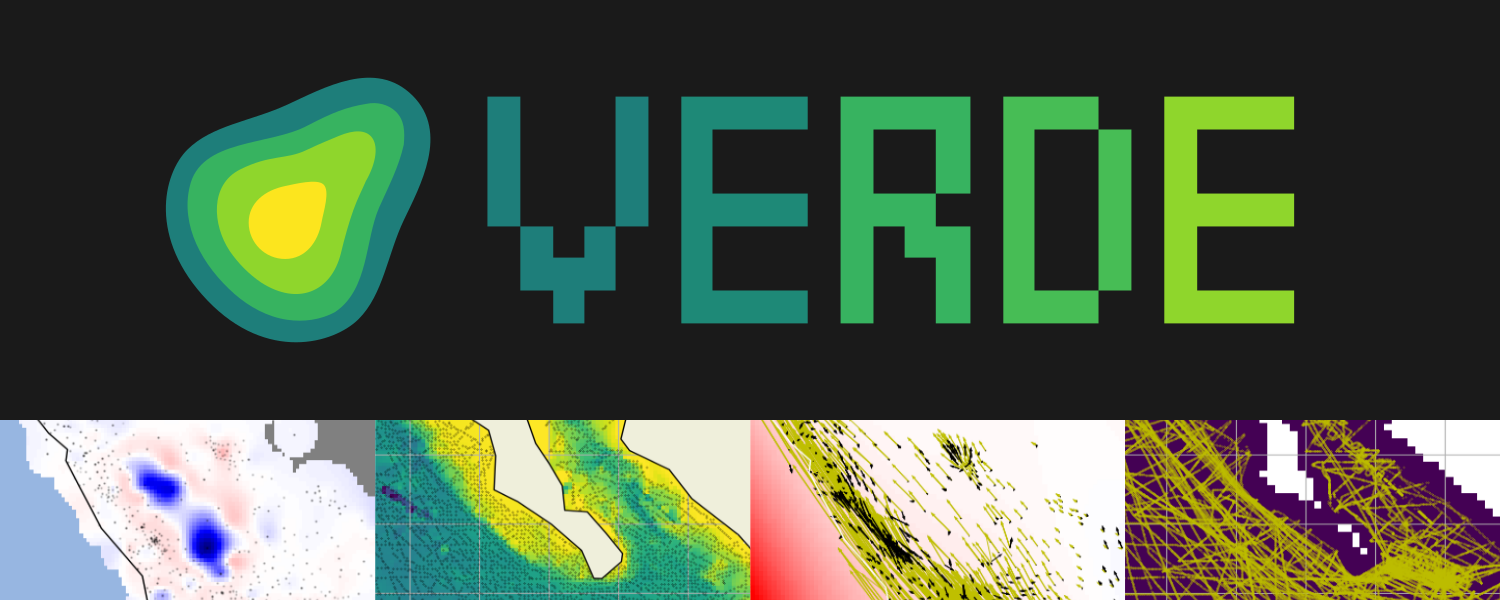"Processing and gridding spatial data, machine-learning style"
Project description

Documentation | Documentation (dev version) | Part of the Fatiando a Terra project





About
Verde is a Python library for processing spatial data (bathymetry, geophysics surveys, etc) and interpolating it on regular grids (i.e., gridding).
Our core interpolation methods are inspired by machine-learning. As such, Verde implements an interface that is similar to the popular scikit-learn library. We also provide other analysis methods that are often used in combination with gridding, like trend removal, blocked/windowed operations, cross-validation, and more!
Project goals
Provide a machine-learning inspired interface for gridding spatial data
Integration with the Scipy stack: numpy, pandas, scikit-learn, and xarray
Include common processing and data preparation tasks, like blocked means and 2D trends
Support for gridding scalar and vector data (like wind speed or GPS velocities)
Support for both Cartesian and geographic coordinates
The first release of Verde was focused on meeting most of these initial goals and establishing the look and feel of the library. Later releases will focus on expanding the range of gridders available, optimizing the code, and improving algorithms so that larger-than-memory datasets can also be supported.
Contacting us
Find out more about how to reach us at fatiando.org/contact
Citing Verde
This is research software made by scientists (see AUTHORS.md). Citations help us justify the effort that goes into building and maintaining this project. If you used Verde for your research, please consider citing us.
See our CITATION.rst file to find out more.
Contributing
Code of conduct
Please note that this project is released with a Contributor Code of Conduct. By participating in this project you agree to abide by its terms.
Contributing Guidelines
Please read our Contributing Guide to see how you can help and give feedback.
Imposter syndrome disclaimer
We want your help. No, really.
There may be a little voice inside your head that is telling you that you’re not ready to be an open source contributor; that your skills aren’t nearly good enough to contribute. What could you possibly offer?
We assure you that the little voice in your head is wrong.
Being a contributor doesn’t just mean writing code. Equally important contributions include: writing or proof-reading documentation, suggesting or implementing tests, or even giving feedback about the project (including giving feedback about the contribution process). If you’re coming to the project with fresh eyes, you might see the errors and assumptions that seasoned contributors have glossed over. If you can write any code at all, you can contribute code to open source. We are constantly trying out new skills, making mistakes, and learning from those mistakes. That’s how we all improve and we are happy to help others learn.
This disclaimer was adapted from the MetPy project.
License
This is free software: you can redistribute it and/or modify it under the terms of the BSD 3-clause License. A copy of this license is provided in LICENSE.txt.
Project details
Release history Release notifications | RSS feed
Download files
Download the file for your platform. If you're not sure which to choose, learn more about installing packages.












